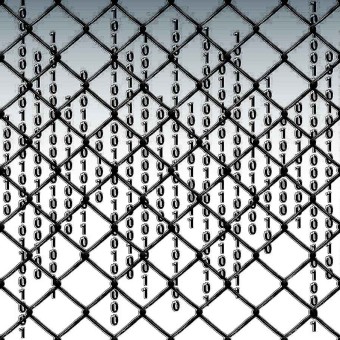And thus, a great controversy was born.
The problem was that the ISP’s were taking the “Cable TV” viewpoint, while the rest of us were taking a “Call My Friends” approach. And, honestly, here’s where the ISP’s got it horribly wrong: the Internet, unlike television, was never just a playground for those who could put together the time and money to produce a television program (don’t talk to me about public access; that’s a sacrifice cable companies were legally compelled to provide to justify their monopolizing of the system, and when’s the last time you watched a public access program?). Anyone with $10 and a little patience could build a website and get their ideas out to untold numbers of people. The people who built those websites did some amazing things: they enabled contact between people living in disparate cultures, the allowed direct trade between artists and art-lovers half a world apart; they opened discussion boards for scientists to collaborate, writers to share stories, children to have near real-time pen pals. And, of course, they enabled our currently near-debilitating fascination with cat videos. I’m not saying it’s all good.
But it’s a playing field where everyone, even in our currently over-saturated climate, has a chance of being heard. Of being seen. Of being made fun of for being seen. Of finding love, because someone was really sorry for you that everyone in the world was laughing at that video of you falling down drunk on your 40th birthday. Of starting a business based on the t-shirts you sold at your own (psychological) expense, commemorating the online proposal that redeemed your fate in the eyes of millions. You know, the Internet. It’s more than a two-way street.
But the ISP’s, thinking it’s more like Cable TV, thought they could start charging the “most wanted” websites more so that their content would get to you faster. Which means, effectively, that all those little websites get their content to you slower. And as we all know, 2 seconds in Internet time is approximately 20 years in real life. Imagine this: your friend sends you a link to a website where someone is selling their handmade whatsits. Your friend assures you they are amazing, the most beautiful examples of whatsits they have ever seen. You type the site name in your browser…and wait. And wait. One second….two…
Guess they didn’t pay their “fast traffic” fee. How much do you care about those whatsits?
The Breakdown
Here’s what Net Neutrality isn’t:
- It isn’t the government trying to dictate what ISP’s can charge for their services. It is the concept that the government should prevent ISP’s from charging extra to some websites to get their content to users faster than other sites.
- It isn’t the government preventing ISP’s from charging extra for extra services. ISP’s routinely already charge us on a scale related to how fast our Internet (ostensibly) comes into our homes. Net Neutrality applies only to the ISP’s charging content providers extra, and given that they claim they’re already delivering us content at the highest speeds we can afford, that necessarily means they will slow some traffic in order to prioritize those who can pay.
- It isn’t excessive, unnecessary government regulation. Look, I’m as over the incomprehensible bulwark of legalese as the rest of you. But in a culture where a few large companies hold the cables that most of our Internet traffic runs through, and in a culture where we’ve by and large accepted the concept that corporations are solely for the purpose of generating profit for their shareholders, it’s actually a good idea to have a little regulation to make sure those corporations don’t quash all the little guys. You know, like we did with the telephone companies. Before we all started using the Internet, instead.
A Final Metaphor
Imagine your dog is vomiting all over your house, and you realize he may have just eaten that slice of chocolate cake you left on the coffee table. You rush to the phone and call your vet, only to be met with the following message:
“We’re sorry, but the number you dialed is not on our Preferred-Contact System. Please enjoy the following musak while we go about connecting your call. Or consider pressing “1” to bypass this message and be immediately connected to one of our Preferred-Contact Veterinarians. Your original call will be completed in 10…9…8…”

One thought on “What Net Neutrality Is (and what it isn’t)”
Comments are closed.